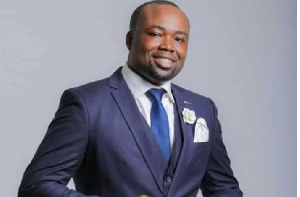Although the symptoms of COVID-19 are well known, and a battery of treatment measures has been used to save lives, much less is known about what happens after recovery.
What is the long-term health effect of Covid 19 survivors? Past epidemics caused by similar viruses show that the aftermath can last more than a decade. Study showed that survivors of severe acute respiratory syndrome, or SARS, suffered lung infections, higher cholesterol levels and were falling sick more frequently than others for as long as 12 years after the epidemic coursed through Asia, killing almost 800 people.
Research on Covid 19 showed that some recovered patients report breathlessness, fatigue and body pain months after first becoming infected. Studies conducted in Hong Kong and Wuhan, China show that survivors grapple with poorer functioning in their lungs, heart and liver. And that may be the tip of the iceberg.
The coronavirus is now known to attack many parts of the body beyond the respiratory system, causing damage from the eyeballs to the toes, the gut to the kidneys. Patients’ immune systems can go into overdrive to fight off the infection, compounding the damage done. According to Bloomberg, (https://www.bloomberg.com) virus survivors could suffer severe health effects for years.
Dr Nicholas Hart, the British physician who treated Prime Minister Boris Johnson, described the Covid 19 as “this generation’s polio” inferring the virus could leave many marked by its scars and reshape global health care.
According to Dr. Andrew Martin, chair, pulmonary medicine at Deborah Heart and Lung Center in Browns Mills, New Jersey, reported by www.healthline.com, “Patients with acute respiratory distress syndrome (ARDS), seen often in severe COVID-19 illness, sometimes develop permanent lung damage or fibrosis as well,” He emphasized that “Viral respiratory infections can lead to anything from a simple cough that lasts for a few weeks or months to full-blown chronic wheezing or asthma,”. He added that when a respiratory infection is severe, recovery can be prolonged with a general increase in shortness of breath even after lung function returns to normal.
Jessie Edwards, PhD, an epidemiologist at the University of North Carolina at Chapel Hill, worked with a team from Johns Hopkins University and Chinese researchers to study COVID-19 patients in Shenzhen, China. The research indicate that even people with mild disease can have abnormal lab or imaging findings, even if they never progress to a more severe disease. According to Edwards’s study, 47% of people who had only a mild disease and 61% with a moderate disease had abnormal liver function tests, indicating injury to the liver, during their illness. Another study found that 50% of people who didn’t have symptoms had abnormal findings on imaging tests showing damage in the lungs, even without lung symptoms.
Another worrying research finding shown that healthy young children who may have had only a mild disease or one without symptoms can, weeks after, have a condition similar to Kawasaki disease, now being called pediatric inflammatory multisystem syndrome (PIMS). This condition may be due to a delayed immune system response that inflames multiple organ systems, including blood vessels, and can lead to severe complications. While most children recover from Kawasaki disease, it can cause long-term heart damage.
The bottom line is that the new coronavirus infection according to health experts has profound effects on many different organ systems in the body and it is important to appreciate that some long-term conditions can be anticipated so we can prepare holistically as a country to prevent or manage to benefit patients and Ghana as whole.
More than 10 million out of the over 16 million infested people around the world have been deemed recovered from the Covid 19, with Ghana having over 28 thousand recoveries as at July 26, 2020@ 11;12pm according to the World Health Organisation (WHO) but, beating the initial sickness may be just the first of many battles for those who have survived according to health experts.
Ghana recorded 794 new cases within 24hrs as at 11;12pm on July 26 with over 31 Thousand cases and 161 deaths. With over 31 Thousand cases and still counting, the long-term damage to health could strain social safety nets and health-care infrastructures for years to come as well as have dire social and economic implications for our country.
The attempt by our government and the Ghana Health services to discount the importance of our covid 19 case count and emphasize the active cases is rather unfortunate and detrimental to the government`s own fight against the virus and future health of infested people and the nation.
In the president’s 14th address to the nation on Covid 19, he said what we should look out for should be the active cases and went ahead to announce further easing of restriction. The government will be doing Ghana great disservice if restrictions are eased just because of reduced active cases without making provision for the future health challenges those who recover would face which will eventually affect our health care delivery, infrastructure, production and GDP.
The current ongoing voter registration exercise has been criticized by many CSOs and opposition political parties arguing that the exercise could escalate the covid 19 cases even before the December elections which per our constitution cannot be postponed as we were made to understand by government. Churches have also criticized government for allowing the EC to go ahead with the registration exercise which on paper has made provision for ALL safety protocols but in practice has no or very minimal safety protocols being observed.
Is the latest easing of the covid 19 restrictions on churches and other commercial activities a ‘balancing act’ so that Ghanaians would not blame only the voter registration exercise as the sole reason for the escalating covid 19 cases?
Many Ghanaians knowing they are sacrificing parts of their lungs, hearts, brains and immune systems to go out there to register could be voting to make a bold statement in the December election.
The hard truth going by the current research is that Ghana currently has over 28 Thousand citizens who may have compromised immune and other body systems which must be of great concern to government and not only the active cases.
Government and private health care providers should consider setting up “COVID-19 discharge clinics” for patients who have recovered. After the patients are discharged, teams of providers must also follow up with telephone calls to ensure that people’s symptoms continue to improve.
God help our beloved country Ghana.
Opinions of Tuesday, 28 July 2020
Columnist: Emmanuel Kwashie Agbodzi



















